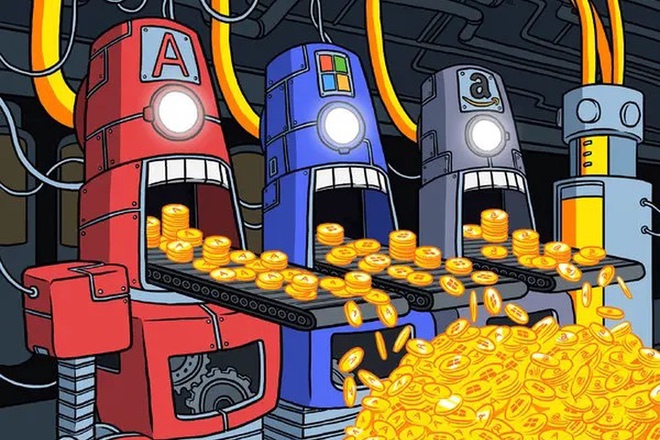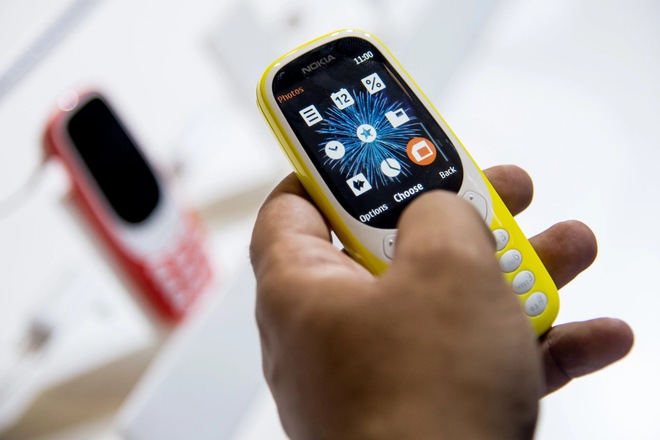As lawmakers wonder if Apple, Google, Facebook and Amazon are monopolies, a reporter recounted times she has tried to avoid interacting with these companies.
Last week, executives from Amazon, Facebook, Google and Apple were called before the US Congressional Antitrust Committee to answer questions about whether they have too much power and whether it is having a negative impact on consumers or not.
The other tech leaders appeared at the hearing via an online conferencing service and answered questions accusing them of being “virtual world moguls,” saying they had many rivals and consumers had to ‘other options instead of the services they offer.
But is it true? Last year, in an effort to understand our reliance on these companies, I conducted an experiment to see how difficult it is to remove them from everyday life.
It’s not easy to do. From my years of experience writing about privacy in the digital world, I know these companies are the source of a lot of our interactions online. I work with a tech expert named Dhruv Mehrotra who designs a personalization tool for me, a virtual private network (VPN) that runs my devices to send or receive data from tech giants by blocking the millions of internet addresses that these companies control.
Then I blocked Amazon, Facebook, Google, Apple, and Microsoft – then blocked everything at the same time – for over six weeks. Amazon and Google are the hardest companies to avoid.
Removing Amazon from my life meant I didn’t have access to any websites hosted on Amazon Web Services, the largest cloud provider on the internet. Many applications and much of the internet use Amazon’s servers to store their digital content, and much of the digital world is inaccessible when I say goodbye to Amazon, including its competitors. Amazon Prime Video is Netflix.
In real life, it’s also very difficult to avoid Amazon. When I placed an eBay car phone holder, it came in a package with Amazon’s signature packaging because the seller used “Fulfillment by Amazon” – he paid the company for store and transport products.
When I block Google, the whole internet slows down because almost every website I visit uses Google as a font source, serves ads, follows users, or determines if that user is a good person. Bot. During the Google blocking process, I am unable to log into the Dropbox data storage service because this website thinks I am not a real person. Uber and Lyft have also stopped working, as they both rely on Google Maps for navigation. I discovered that Google Maps really has a monopoly on the online map market. Even Google’s critical rival, Yelp, uses Google Maps to notify computer users of the location of businesses.
I have come to the conclusion that Amazon and Google are no different from essential internet infrastructure providers, they are so deeply embedded in the architecture of the digital world that even competitors have to rely on their services.
Facebook, Apple and Microsoft also caused a lot of hardship. While blocking Facebook is not that difficult, I miss Instagram (which is owned by Facebook) very much, and I also stop getting information from my social connections, like when a friend’s child was born. My good is born. “I thought if I posted something on Facebook, everyone would know,” she told me as I called to congratulate myself weeks later. I tried using an alternative platform called Mastodon, but a social network without friends isn’t much fun.
It is very difficult to leave Apple because I use two computers and an iPhone, so I have to buy completely new hardware to continue to access the internet and make phone calls.
Apple’s iOS software and Google’s Android have double the power in the smartphone market. Because I wanted to avoid both companies, I bought a brick phone – the Nokia 3310, which allowed me to relearn how to text with number keys – and a Linux laptop from a company called Purism. Creating “the right IT environment” by helping users avoid tech giants.
Texting on a brick phone is not a very pleasant experience
It is true that there are many alternatives to the products and services offered by the tech giants, but it is difficult to find them and learn how to use them.
Microsoft, the “lucky” company not in the hot seat in this antitrust hearing, but no different from the other four, is the big guy most easily blocked at the consumer level. As my colleague Steve Lohr says, today Microsoft is “primarily the supplier of technology to corporate customers”.
But like Amazon, Microsoft has a cloud service and as a result some websites become inaccessible as well as two Microsoft services that I use regularly, LinkedIn and Skype. The inability to use tech giants’ preferred services was a nightmare in this experiment: According to the Wall Street Journal, tech giants have acquired more than 400 companies and startups over the past decade.
Critics of big tech companies say, “If you don’t like any company, don’t use their products.” What I learned from the tests is that it is completely impossible. It’s not just products and services that fit the names of tech giants. And these companies control a host of other lesser-known products and services that are hard to separate from the tools we depend on to do everything day-to-day, from work to point of view. A to point B.
A lot of people call what I do “digital vegetarian”. Digital vegetarians are very careful about the hardware and software they use, as well as the data they consume and share, because information is power, and these companies are holding more and more data between their places. hands.
There are two very different types of answers to my story. Some say that experience proves how important these companies are to the U.S. economy and that their usefulness to consumers, state regulators should not interfere with them. Others, like Rep. Jerrold Nadler, a Democrat from New York and a former member of the Congressional Antitrust Committee, say my experience is proof of their monopoly power.
“By controlling critical infrastructure, these companies control entry to markets,” Nadler said. “The problem is no different from the one we faced 130 years ago, when railroads transformed Americans’ lives – allowing farmers and manufacturers to access new markets, but it creates also a gong that rail monopolies can take advantage of.
If I keep blocking the tech giants, I won’t be able to watch the audience online. C-SPAN streams it directly through YouTube, which is owned by Google.
After the trial was over, I returned to the services of these companies because as the results showed, I really had no other choice.




